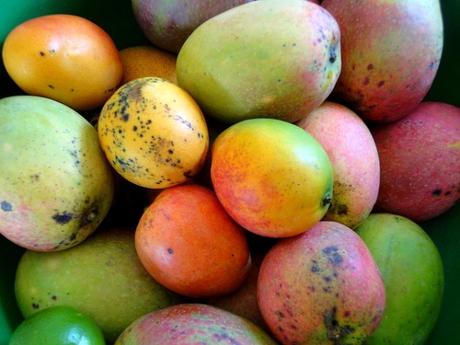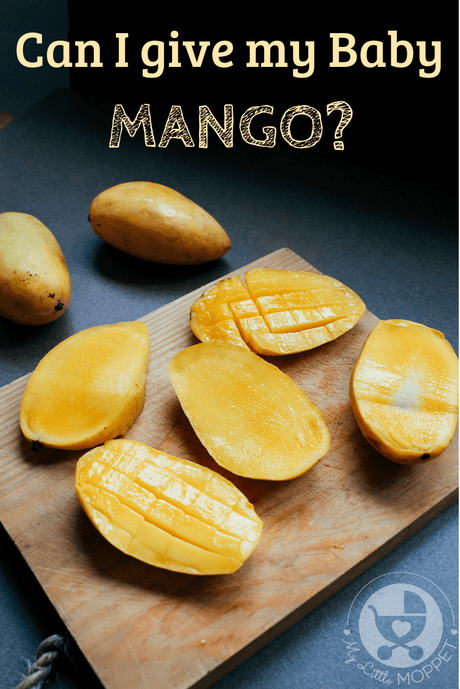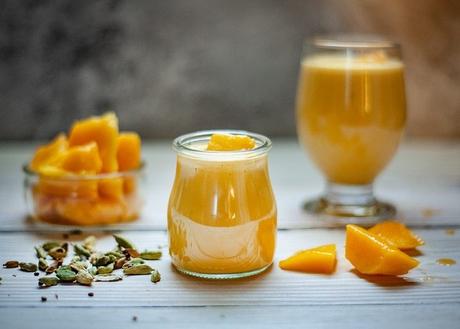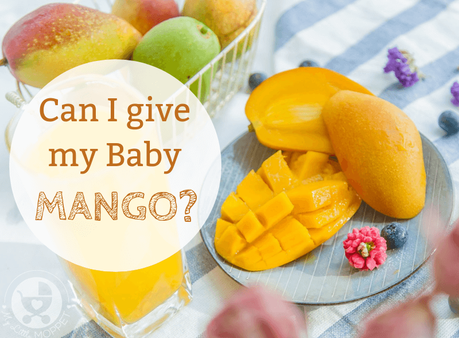March 14, 2019 Leave a Comment
While we get ready to enjoy the season of the king of fruits, Moms of infants wonder: Can I give my Baby Mango? Let’s find out if your baby can eat mangoes.
Buy Homemade Baby & Toddler Food from a Doctor Mom's KitchenOrganic · FSSAI Certified · NABL Lab certified Buy Sprouted Sathumaavu Health Mix powder for Babies / Homemade Cerelac Dry Fruits Powder for Babies/Toddlers Pancake Mixes for Toddlers
Mangoes!! What comes to your mind when you think of mangoes? The sweet taste or the addictive mouthwatering smell? Or maybe it’s the nostalgia associated with this summer fruit, that takes you back to the summer holidays of your childhood. Whatever it may be, it can’t be denied that Indians have a very special relationship with the king of fruits!
Mangoes were first found in the southern part of Asia and there is evidence to prove that they were grown in India as long as 5,000 years ago. Mangoes were later introduced to other parts of the world. Mangoes are said to be the favorite fruit of ancient Indian kings and queens. In fact, the famous Persian poet Amir Khusrau titled this fruit ‘The Fairest Fruit of Hindustan’. These reasons are probably why the mango is the National Fruit of India.

The mango has also been the stuff of legends. It was considered sacred and celebrated as a symbol of prosperity and good luck in India. Mango leaves occupy an important place in most of the Hindu rituals. Buddhists believe that Buddha meditated under the shade of a mango tree, which is why mangoes are considered auspicious as gifts.
Mangoes are available in different colors including yellow, orange, red and green. Mangoes are consumed both ripe and raw. Ripe mangoes are eaten as such and are also added to several dishes, especially desserts. Raw mangoes are used in curries, pickles, chutneys and other savory dishes.
The most popular varieties of Indian mangoes are:
- Alphonso Mango (Hapus)
- Totapuri Mango
- Kesar Mango
- Badami Mango
- Green mango
- Rajapuri Mango and
- Banganapalli Mango (Safeda)
Nutritional Benefits of Mangoes
Mangoes are high in fiber, filled with vitamins, pectin and low in calories. Here are some of the nutritional benefits of this amazing fruit:
- Promotes Healthy Gut & Aids digestion
- Helps fight against lifestyle diseases like Cancer and heart disease
- Lowers Cholesterol and regulates blood pressure
- Helps to improve eye health
- Improves the health of skin and hair
- Boosts Immunity
- Helps to Prevent Asthma
- Encourages cognitive development
- Improves Liver Health
Can I give my Baby Mango?

While the entire family is enjoying this yummy summer fruit, it’s natural to feel guilty for leaving your baby out. However, mangoes are safe for babies over 6 months, after basic foods have been introduced. The ideal age of introducing mangoes is between 6 and 8 months.
For babies, mangoes can be given mashed after removing the peel and seed, taking care to remove any coarse fibers to prevent choking. Small pieces of mangoes can be given as finger foods, once the baby has mastered the pincer grasp. Never leave baby unsupervised with any food.
Babies with food sensitivities or a family history of allergies may have an allergic reaction to mangoes. The skin of mangoes can also trigger a reaction if it comes in contact with baby’s skin. In that case, introduce mangoes after consulting with the child’s pediatrician.
While not mandatory, it’s better to follow the 3-day rule to be on the safe side, and start with a small quantity in the beginning. If the baby displays symptoms like itchy rashes, abdominal pain, burning sensation in the mouth, swelling of the face or shortness of breath, he needs to be rushed to the doctor right away.
Tips to Choose and Store Mangoes
The best way to select good mangoes is by smell and touch. A fresh, ripe mango will have a sweet aroma without any hint of rot. Ripe mangoes can be pressed gently – they will have a slight give if they are ready to eat. There shouldn’t be any bruises, cuts or blemishes. Ripe mangoes can be stored in the refrigerator for 4-5 days. Unripe mangoes are not to be refrigerated. They can be kept in paper bags for ripening.
Mango Recipes for Babies and Kids

3-Ingredient Mango Dates Smoothie
Mango Muesli Shots Recipe
Homemade Mango Frooti Concentrate
Honey Mango Popsicle Recipe for Summer
Multigrain Mango Milkshake for Toddlers
Easy Homemade Mango Kulfi Recipe
Easy Mango Yogurt Recipe
Chilled Mango Cucumber Soup Recipe
Raw Mango Pachadi Recipe

